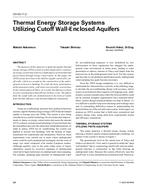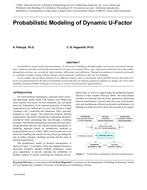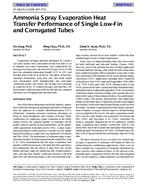Describes the natural behaviour of lakes. A description of the modes of heat transfer to, from, and within lakes is given. Investigations revealed two models are necessary. A bulk model assumes that an isothermal lake can be used for shallow lakes and lakes with high inflow rates. Deeper lakes require a more complex model to account for the significant effects of thermal stratification. A computer code was developed to handle both models. The code is driven by monthly average bin weather data and permits heat input or extraction from heat pumps or chillers. The stratified model is limited to systems in which the equipment heat is input or extracted near the lake surface. Therefore, it will not effectively model closed loops located below the thermocline. Heat rates from this equipment are also determined from bin data. The code is a valuable tool for determining the acceptability and performance of lake water heat pump systems. It can also be extended to establish limits and performance of lakes used with larger commercial heating and cooling systems. Recommendations concerning maximum cooling and heating unit size for various lake surface areas and depths are included. No recommendations concerning internal heat storage or reclaim are provided, but innovative design will extend maximum unit sizes.
KEYWORDS: heat pumps, lakes, water heat pumps, temperature stratification, models, temperature distribution, computer programs, calculating, performance.
Citation: ASHRAE Transactions, vol.96, pt. 1, Atlanta, 1990
Product Details
- Published:
- 1990
- Number of Pages:
- 9
- File Size:
- 1 file , 1.1 MB
- Product Code(s):
- D-18443


